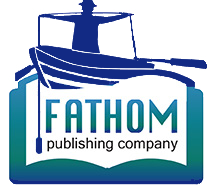Writing Notes and Links
Share your favorite links with us.
Wired for Stories
Stories Are As Old As Humanity—And May Be The Key To Saving It by Vicki Phillips appeared in the July 22, 2021 issue of Forbes. “Humans are wired for stories,” she writes. Story telling is as old as humanity and there is a story teller in all of us.
Read or listen to Stories Are As Old As Humanity—And May Be The Key To Saving It for inspiration for writing your own story and encouragement in teaching those around you to write theirs.
100 Word Story
Writing Temperatures
Ever wondered how to write out temperatures in your stories? Should you write as numerals or words? How should you format them?
Here’s a useful resource at Proofed.
Write your way to Happiness
Nancy Olson is a fan of all things handwritten. Her article Write Your Way To Happiness In As Little As Ten Minutes A Day is a testament as she gives tips for getting started and what to write about.
Listen to Others Stories
Listening to others life stories can be a great way to get ideas for stories you might write about your own life. It also helps to hear how people look back at their own lives and put them into perspective.
Here are some places you can find personal stories:
- Follow The Moth on public radio or listen to stories on podcasts or on the website .
- StoryCorps allows you to record a memory from your life to be stored in the Library of Congress. You can listen to others stories on public radio and on their podcast or website.
Online Writing Classes
There are many online classes on writing your life story or just writing. Eventbrite offers many good ones, both free and for a fee. “Eventbrite is a global self- service ticketing platform for live experiences that allows anyone to create, share, find and attend events that fuel their passions and enrich their lives.” Search for “writing” or “life story” in the search bar at the top of the page and you’ll find events almost every day. Click the Price filter on the left and choose Free to find the free events. And narrow the time frame by clicking the Date filter. You can search for events near you or online events.
- Detroit Public Library, Music, Arts, & Literature Department offers writing classes, journaling workshops. Write Something is a bi-weekly workshop with writing prompts provided by the Library facilitator. Keep checking back as the classes are added to Eventbrite about a week before they occur.
- Virtual Writing Hour with the National Portrait Galley starts with a five minute “writing break” about anything to warm up. Then the leader shows an image from the Gallery and gives a prompt based on the image. Everyone writes for twenty-five minutes and then any one who wants shares their story. This is so popular it is sold out through July 2021.
- Bronx Art & fun Hub holds poetry and prose creative writing events.
Just a few of the opportunities at Eventbrite
Harvard Classics
Harvard Classics, originally referred to as Eliot’s Five-Foot Shelf, are a time capsule into the thinking in 1909 and include literature, philosophy, and the sciences. The entire set is now available free online in two places.
Library of Congress Searches
One interesting place to search is Chronicling America. The site contains many complete digitized newspapers from 1777 to 1963. Anything prior to 1924 is very likely to be out of copyright so you can use stories or photographs you find.
- Try search for the local paper where you or your ancestors lived.
- Try searching for individual names. Newspapers used to print names of people registered in local hotels and those traveling by steamship.
- Try searching for company names where your ancestors worked or business they owned.
The Library of Congress Photo, Print and Drawing site is also worthwhile to try searches.
Collection of Shorts
Visit Paulo Coelho blog, Stories & Reflections, for a collection of quick, interesting reads. Random Stories & Reflections.
He has published 30 books in over 170 countries. His books have been translated into 83 languages and have sold over 320 million copies. Here is a list.
Free Writing Classes
Here’s where you can find free writing courses
- The Foundations of Fiction, Lynda.com through the Anchorage Public Library. “Learn how to write compelling novels, memoirs, short stories ….” A six-hour course available on your own schedule with your library card. Check your local library and see if they offer Lynda.com.
- Coursera is a site that compiles lists of courses. Find 373 “free, creative writing” courses here.
- Eventbrite is a registration site for courses on every topic you can imagine. Use the search feature to find free writing classes. Search Eventbrite for “writing” and use the filter on the right to limit the search to free classes.
Old Newspapers and Images Online
Research old newspapers and Photographs
Go to Chronicling America at the Library of Congress. Many Newspapers from 1777 to 1963 are available in digitized format. You can view or download images or pdfs of individual pages.
Copy the text by clicking the Text button at the top right of the image window. Sometimes the text is nearly perfect and sometimes it requires extensive editing. You can search for specific newspapers or search by person’s name or location. In the early 1900s, newspapers listed who was registered at local hotels or traveling by steamship. It’s worth trying a search for a relative’s name.
Also look at the other digital collections available from the Library of Congress here. Maps, photographs and collections of letters are available.
Every year more documents are entering the public domain. Generally, that means that you can download and use or quote from materials in the public domain. LifeHacker gives more information.
